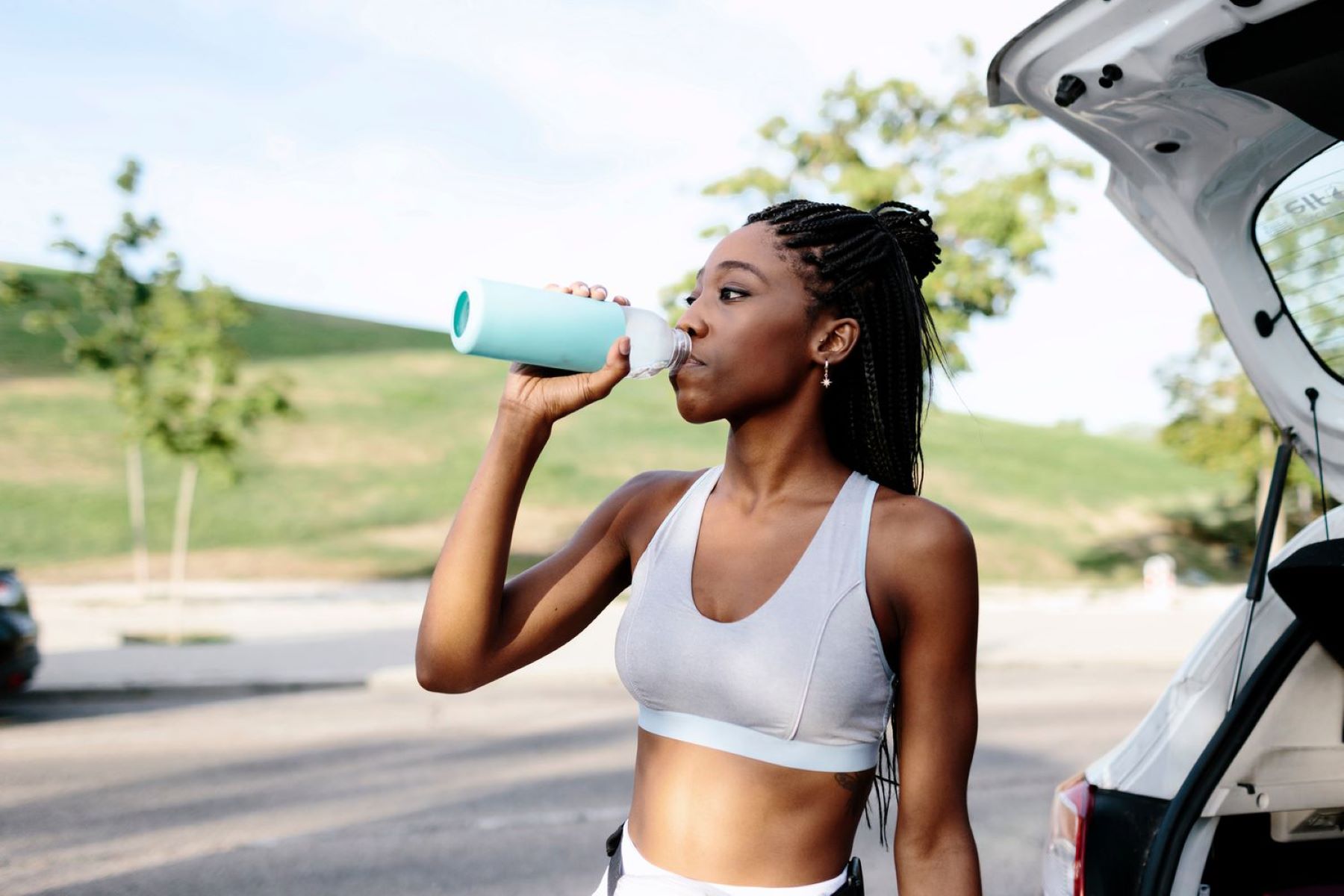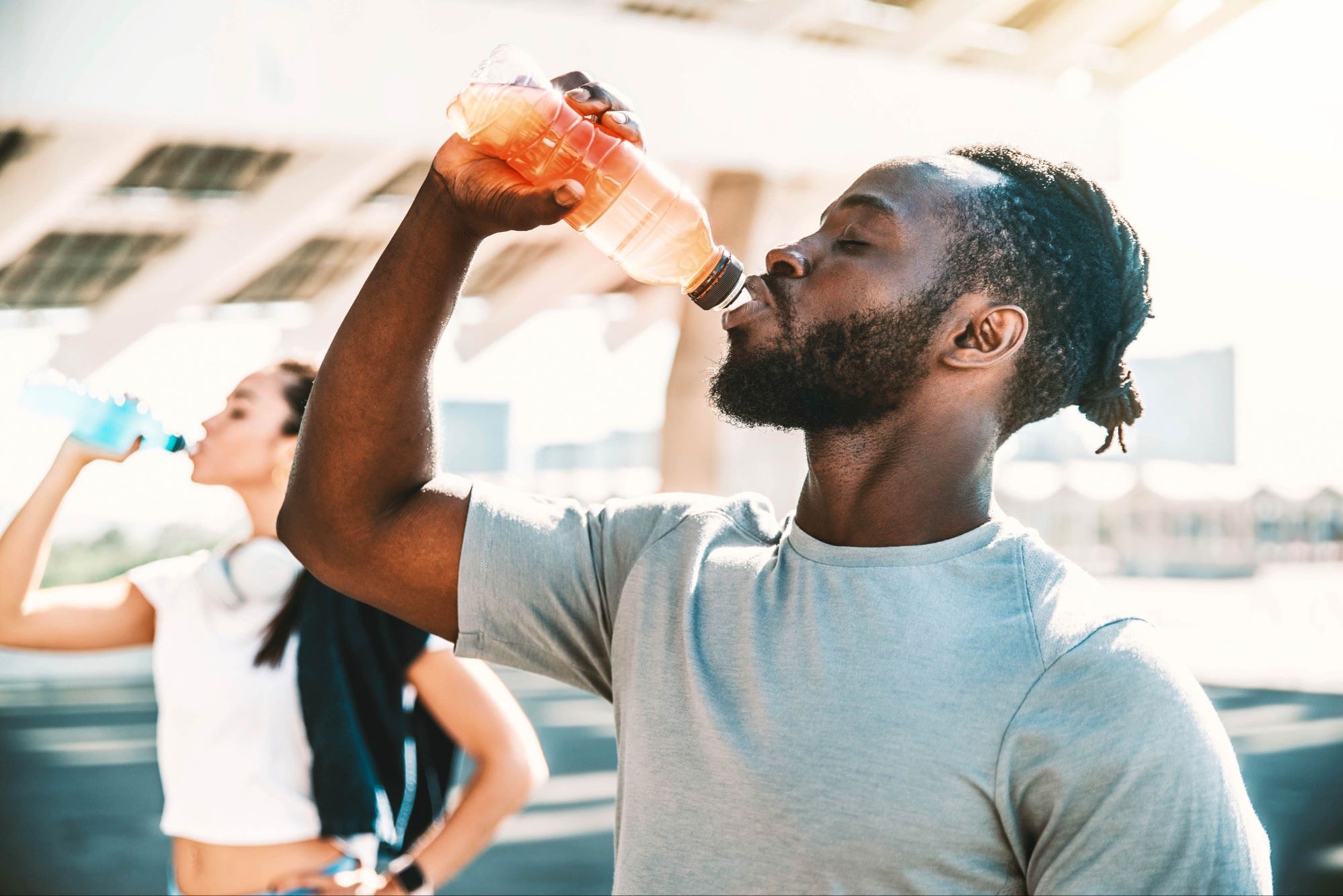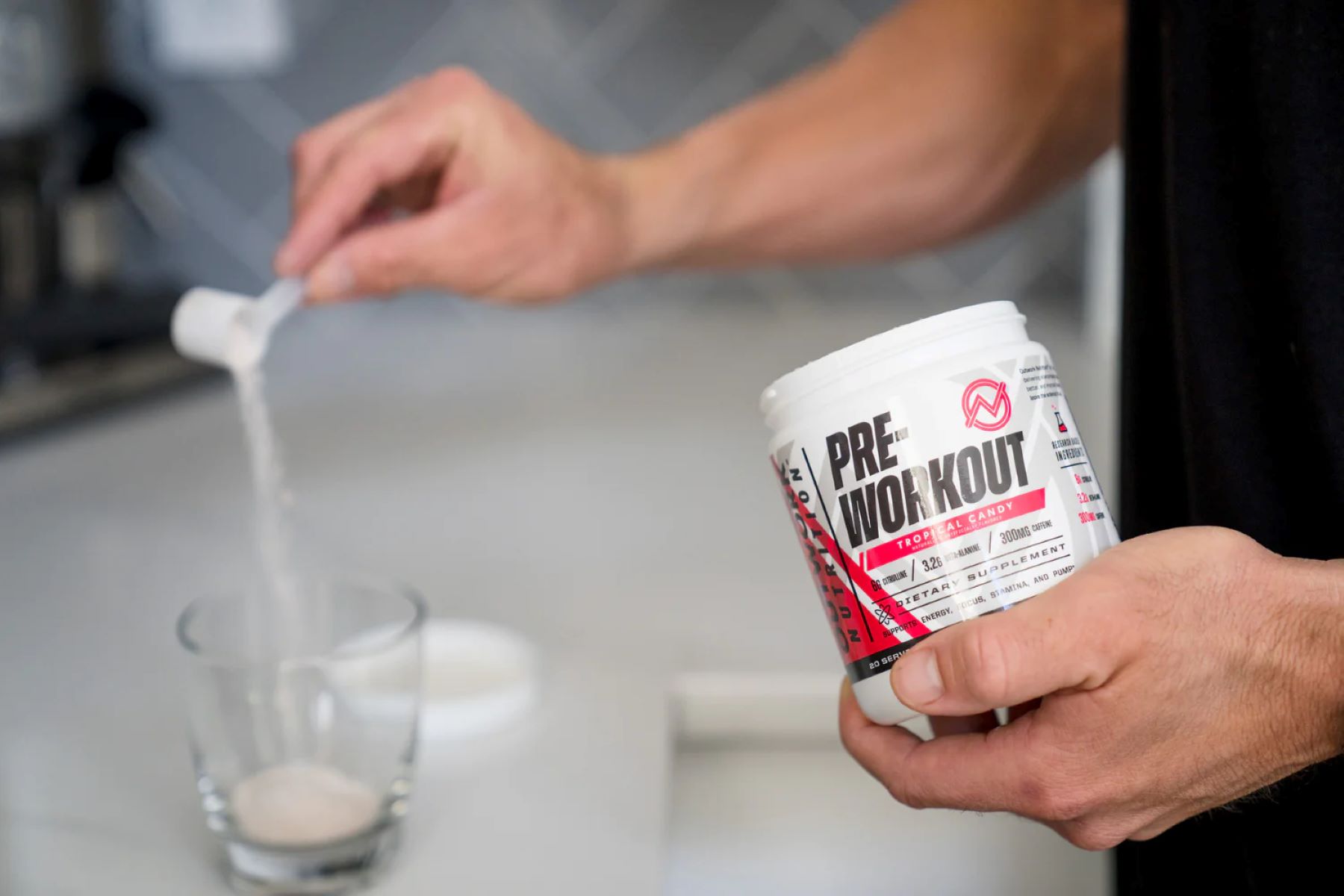Home>Misc>Featured>Which Of The Following Beverages Would Be Ideal To Consume During Endurance Exercise?


Featured
Which Of The Following Beverages Would Be Ideal To Consume During Endurance Exercise?
Modified: January 2, 2024
Discover the featured beverages that are perfect for endurance exercise and fuel your performance. Whether it's sports drinks or protein shakes, find your ideal choice here.
Introduction
Welcome to the world of endurance exercise! Whether you’re an experienced athlete or just starting to explore this realm, you’ve come to the right place. In order to get the most out of your training and improve your overall performance, it’s crucial to pay careful attention to your beverage consumption during endurance exercise.
Engaging in activities such as long-distance running, cycling, or swimming requires significant physical exertion, which leads to increased sweating and fluid loss. This can be detrimental to your performance and overall well-being if not adequately addressed. Consuming the right beverages before, during, and after your workouts can help replenish lost fluids, provide essential nutrients, and maintain optimal hydration levels.
Choosing the ideal beverage for endurance exercise is not a one-size-fits-all approach. It depends on various factors such as individual needs, intensity and duration of the exercise, and personal preferences. In this comprehensive guide, we will explore the different beverage options available and delve into their specific benefits in order to help you make an informed decision that suits your unique requirements.
By selecting the right beverage for endurance exercise, you can optimize your performance, avoid dehydration, reduce fatigue, and enhance your overall training experience. So, let’s dive in and find out which beverages are ideal for you!
Importance of Proper Beverage Consumption During Endurance Exercise
Proper beverage consumption plays a vital role in optimizing your performance and minimizing the risks associated with endurance exercise. It’s important to understand the reasons why carefully selecting and consuming the right beverages is crucial during these activities.
First and foremost, staying hydrated is key. Endurance exercise results in increased sweating, which leads to fluid loss and therefore, a higher risk of dehydration. Dehydration can negatively impact your cognitive function, diminish your physical performance, and even lead to heat exhaustion or heatstroke in extreme cases. By consuming adequate fluids, you can effectively prevent dehydration and maintain optimal hydration levels throughout your workout.
In addition to fluid replacement, the consumption of the right beverages can provide you with essential electrolytes. Electrolytes, such as sodium, potassium, and magnesium, are crucial for maintaining proper muscular and nerve function. These minerals are lost through sweat during endurance exercise, and replenishing them is necessary to prevent muscle cramps, improve energy levels, and aid in post-exercise recovery.
Beverages specifically formulated for endurance exercise, such as sports drinks, often contain a combination of carbohydrates and electrolytes. Carbohydrates are a valuable source of energy during prolonged physical activity, as they are easily broken down and utilized by the body. By consuming carbohydrates through beverages, you can replenish glycogen stores, delay fatigue, and improve your overall performance.
Another aspect to consider is the timing of beverage consumption. It’s important to fuel your body before, during, and after endurance exercise. Pre-exercise beverages can provide an extra energy boost, while consuming fluids during your workout helps to maintain hydration and sustain energy levels. Post-exercise recovery beverages can aid in muscle repair and replenish glycogen stores for faster recovery.
In summary, the importance of proper beverage consumption during endurance exercise cannot be overstated. By staying hydrated, replenishing electrolytes, providing the necessary energy, and timing your intake strategically, you can optimize your performance, reduce the risk of dehydration and muscle cramps, and enhance your overall endurance exercise experience.
Factors to Consider in Selecting the Ideal Beverage
With so many beverage options available, it can be overwhelming to determine which one is the best for your endurance exercise needs. However, by considering a few key factors, you can make an informed decision and select the ideal beverage that suits your individual requirements.
One of the primary factors to consider is the intensity and duration of your exercise. If you’re engaging in a high-intensity activity or a longer duration workout, you may benefit from beverages that provide a combination of hydration, electrolyte replenishment, and energy. On the other hand, for shorter and less intense workouts, a simple and easily digestible beverage may suffice.
Personal preferences also play a role in selecting the ideal beverage. Some people prefer the taste and convenience of sports drinks, while others may opt for more natural options like coconut water or tart cherry juice. It’s important to choose a beverage that you enjoy drinking, as it will help ensure that you stay properly hydrated and motivated during your endurance exercise.
Consider any specific dietary requirements or restrictions you may have. For individuals with certain medical conditions or dietary preferences, it’s essential to choose a beverage that aligns with those needs. For example, if you follow a vegan or gluten-free diet, you may need to look for beverages that meet those criteria.
Cost is another factor to consider. While there are many beverage options available, some may be more expensive than others. It’s important to determine what fits within your budget while still providing the necessary hydration, electrolytes, and energy required for your endurance exercise.
Lastly, consider the convenience and portability of the beverage. If you’re participating in activities that require you to be on the move, such as a long-distance run or cycling event, having a beverage that is easy to carry and consume on the go is crucial. Look for options that come in portable packaging or can be easily mixed and consumed without the need for additional containers.
By considering these factors – intensity and duration of exercise, personal preferences, dietary requirements, cost, and convenience – you can narrow down your choices and select the ideal beverage that will support your endurance exercise and help you achieve your performance goals.
Comparison of Different Beverage Options
When it comes to selecting the ideal beverage for endurance exercise, several options are available. Let’s take a closer look at some of the most popular choices and compare their benefits to help you make an informed decision.
Water: Water is a basic and essential option for hydration during endurance exercise. It helps to maintain fluid balance and prevent dehydration. While it doesn’t provide additional electrolytes or carbohydrates, water is often readily accessible and cost-effective. It’s a suitable choice for shorter and less intense workouts or when paired with food or snacks that provide energy and nutrients.
Sports Drinks: Sports drinks are specifically formulated to replenish fluids, electrolytes, and carbohydrates during and after endurance exercise. They typically contain a balanced combination of water, electrolytes such as sodium and potassium, and carbohydrates in the form of sugars. Sports drinks provide hydration, energy, and aid in replenishing electrolytes lost through sweat. However, they may contain added sugars and calories. It’s important to consider your specific needs and the intensity of your workout when opting for sports drinks.
Coconut Water: Coconut water has gained popularity as a natural alternative to sports drinks. It is naturally rich in electrolytes, including potassium, sodium, and magnesium, making it an excellent option for hydration and electrolyte replenishment. Coconut water is also low in calories and provides a refreshing taste. However, it may not contain enough carbohydrates for longer intense workouts, so it may be beneficial to pair it with a source of energy, such as a snack or energy gel.
Tart Cherry Juice: Tart cherry juice is known for its anti-inflammatory properties and potential benefits in aiding recovery from exercise-induced muscle damage. It contains antioxidants and may help reduce inflammation and muscle soreness. While it may not directly impact hydration or provide electrolytes, tart cherry juice can be a valuable addition to your post-workout recovery routine to support muscle repair and reduce exercise-induced inflammation.
In selecting your ideal beverage, consider the specific needs of your endurance exercise, including the intensity, duration, and personal preferences. Different beverages offer distinct benefits, and depending on your requirements, you may choose to incorporate a combination or rotate between options to best support your overall performance and recovery.
Water
Water is often considered the go-to and most basic option for hydration during endurance exercise. It is readily available, affordable, and essential for maintaining fluid balance in the body. While it may not provide additional electrolytes or carbohydrates like other beverage options, it plays a crucial role in preventing dehydration and keeping you properly hydrated during your workout.
One of the benefits of water is its versatility. It can be easily consumed before, during, and after exercise, making it a convenient choice. It quenches thirst effectively and helps regulate body temperature. Additionally, water is calorie-free, which can be appealing for those who are watching their caloric intake or prefer to obtain nutrition primarily from food sources.
Water is particularly suitable for shorter and less intense workouts or when paired with snacks or meals that provide energy and nutrients. It is important to note, however, that for longer and more demanding endurance activities, water alone may not provide sufficient electrolyte replenishment or carbohydrates to sustain performance and prevent muscle fatigue.
It’s also worth considering the source and quality of the water you consume. If tap water is safe and clean in your area, it is a cost-effective option. However, if you have concerns about the quality or taste of tap water, filtered or bottled water can be an alternative. Just be mindful of the environmental impact of single-use plastic bottles and opt for reusable water bottles when possible.
While water is a great choice for hydration during endurance exercise, it is essential to listen to your body’s signals. If you are feeling excessively thirsty, experiencing muscle cramps, or notice changes in urine color, it may indicate that you need more than just water to replenish electrolytes and maintain hydration. Consider incorporating beverages that provide additional electrolytes or carbohydrates, depending on the intensity and duration of your exercise.
In summary, water is a reliable and accessible source of hydration during endurance exercise. It is suitable for shorter, low-to-moderate intensity workouts or when combined with food sources that provide extra energy and nutrients. However, for longer and more intense activities, it may be beneficial to incorporate other beverage options that provide electrolytes and carbohydrates to sustain performance and prevent muscle fatigue.
Sports Drinks
Sports drinks are specially formulated beverages designed to replenish fluids, electrolytes, and carbohydrates during and after endurance exercise. They have become a popular choice among athletes and fitness enthusiasts due to their ability to provide hydration and energy in a convenient package.
One of the primary advantages of sports drinks is their ability to replace electrolytes lost through sweat. Electrolytes such as sodium, potassium, and magnesium are essential for maintaining proper muscle and nerve function. During endurance exercise, these electrolytes are depleted through sweating. Sports drinks contain a balanced combination of electrolytes, helping to prevent muscle cramps, maintain proper hydration levels, and improve overall performance.
In addition to electrolytes, sports drinks also provide carbohydrates in the form of sugars. Carbohydrates are a primary source of energy for the body, and consuming them during prolonged physical activity helps replenish glycogen stores in the muscles and liver, delaying fatigue and enhancing endurance.
The carbohydrate content in sports drinks is typically in the range of 6-8% concentration, which allows for efficient absorption and utilization by the body. This makes sports drinks an effective option for providing a quick and easily digestible source of energy, especially during high-intensity or long-duration exercise.
However, it’s important to note the potential drawbacks of sports drinks. They often contain added sugars and calories, which can be a concern for individuals who are watching their sugar intake or trying to manage their weight. It’s crucial to consider your specific needs and the intensity of your workout when including sports drinks in your hydration strategy.
Another consideration is the flavor and taste of sports drinks. The added sugars and flavorings can make them more enjoyable to drink, helping to encourage hydration during exercise. Some people find the taste of sports drinks refreshing, while others may prefer more natural or mild flavors. It’s important to find a sports drink that you enjoy drinking, as it can significantly impact your desire to consume adequate fluids and stay properly hydrated.
Lastly, cost and convenience should be taken into account. Sports drinks are widely available and come in various sizes and packaging options. However, they can be more expensive than plain water or other alternative beverages. If cost is a concern, it may be beneficial to make your own homemade sports drink by combining water, electrolytes, and a source of carbohydrates such as fruit juice or honey.
In summary, sports drinks are a popular choice for hydration during endurance exercise due to their ability to replenish fluids, electrolytes, and carbohydrates. They can improve performance, delay fatigue, and maintain proper hydration levels. However, it’s important to consider the added sugars and calories, personal preferences, cost, and weigh them against your specific needs and the intensity of your workout when incorporating sports drinks into your hydration routine.
Coconut Water
Coconut water has gained popularity as a natural and refreshing option for hydration during endurance exercise. It is the clear liquid extracted from young coconuts and is known for its high electrolyte content, making it an excellent choice for replenishing fluids and restoring hydration levels.
One of the major advantages of coconut water is its natural electrolyte composition. It contains important minerals such as potassium, sodium, and magnesium, which are crucial for maintaining proper muscle and nerve function. These electrolytes are lost through sweating during exercise, and replacing them is important to prevent muscle cramps and maintain proper hydration.
In addition to electrolytes, coconut water is low in calories and naturally hydrating. It is a great option for those looking to avoid the added sugars and artificial ingredients often found in sports drinks. The natural sugars present in coconut water provide a source of energy, although the carbohydrate content is not as high as in sports drinks.
The taste of coconut water is often described as refreshing and mildly sweet, making it an enjoyable option for many people. It can be consumed on its own or mixed with other ingredients for added flavor. Some individuals may prefer chilled coconut water for a more refreshing experience, especially during hot and humid weather.
While coconut water is a suitable choice for hydration during endurance exercise, it may not provide sufficient carbohydrates for longer and more intense workouts. In such cases, it can be beneficial to pair coconut water with a source of energy, such as a snack or energy gel, to sustain performance.
When selecting coconut water, it’s important to consider the source and quality. Fresh coconut water straight from the coconut is the most ideal option, as it is natural and free of additives or preservatives. Packaged coconut water is a convenient alternative that is widely available, but be sure to read labels and choose a product without added sugars or artificial flavors.
Lastly, it’s essential to keep in mind individual taste preferences and any dietary considerations. While many enjoy the taste of coconut water, some may find it less appealing or may have allergies or sensitivities to coconut. It’s always a good idea to try a small amount first to ensure it agrees with your palate and digestive system.
Overall, coconut water is a natural and hydrating option for endurance exercise. With its electrolyte content, refreshing taste, and low calorie count, it can help maintain hydration and replenish important minerals lost through sweat. Consider incorporating coconut water into your hydration routine, especially for shorter and moderate-intensity workouts.
Tart Cherry Juice
Tart cherry juice has gained attention for its potential benefits in aiding recovery from exercise-induced muscle damage. It is derived from Montmorency cherries, which are known for their high levels of antioxidants and anti-inflammatory properties. While tart cherry juice may not directly impact hydration or provide electrolytes, it can be a valuable addition to your post-workout routine to support muscle repair and reduce exercise-induced inflammation.
One of the key benefits of tart cherry juice is its antioxidant content. Antioxidants help combat oxidative stress caused by intense exercise, which can lead to muscle damage and inflammation. The anthocyanins found in tart cherries have been shown to reduce inflammation, potentially helping to alleviate muscle soreness and improve recovery time.
Research suggests that tart cherry juice may also have a positive impact on sleep quality. Getting adequate restorative sleep is essential for recovery and performance. Tart cherry juice contains naturally occurring melatonin, a hormone that helps regulate the sleep-wake cycle. Consuming tart cherry juice in the evening may promote better sleep duration and quality, allowing for enhanced recovery from endurance exercise.
It’s important to note that tart cherry juice is most commonly used as a recovery beverage and not for hydration during exercise. While it does provide some hydration benefits, it’s usually consumed after a workout to help expedite the recovery process.
When selecting tart cherry juice, it’s important to choose a high-quality, pure product with no added sugars or artificial additives. Some juices may be diluted or have added ingredients that can compromise their nutritional value. Look for organic or 100% pure tart cherry juice to reap the maximum benefits.
It’s worth noting that tart cherry juice may not be suitable for everyone. Individuals with certain medical conditions, such as diabetes or gastrointestinal issues, should exercise caution and consult with a healthcare professional before incorporating tart cherry juice into their routine.
Incorporating tart cherry juice into your post-exercise routine is a simple and natural way to potentially enhance recovery and reduce muscle soreness. While it may not directly impact hydration or provide electrolytes, its antioxidant properties and potential sleep-enhancing benefits make it a valuable addition to the recovery process after endurance exercise.
Conclusion
When it comes to endurance exercise, selecting the ideal beverage for hydration and performance is crucial. By considering factors such as intensity and duration of exercise, personal preferences, dietary requirements, cost, and convenience, you can make an informed decision.
Water, as a basic option, provides essential hydration for shorter and less intense workouts, especially when paired with food sources that provide energy. Sports drinks offer a combination of electrolytes and carbohydrates, making them suitable for longer and more intense activities. Coconut water, with its natural electrolytes and refreshing taste, is a great option for hydration, although it may not provide enough carbohydrates for prolonged workouts. Tart cherry juice, while not a direct hydrator, offers potential benefits in aiding recovery and reducing muscle soreness.
Each beverage option has its own advantages and considerations. It’s important to listen to your body’s signals, experiment, and find what works best for you. Keep in mind your individual needs, taste preferences, and any dietary restrictions. You may also choose to combine different beverages or rotate them based on the intensity and duration of your exercise.
Remember to always stay properly hydrated during endurance exercise to optimize your performance, reduce the risk of dehydration, and enhance your overall training experience. Keep a water bottle or your preferred beverage within reach, and drink regularly before, during, and after your workouts. By giving careful thought to your beverage choices, you can fuel your body, replenish electrolytes, and maintain optimal hydration levels for peak performance and recovery.
So, whether you reach for water, sports drinks, coconut water, or tart cherry juice, make sure you enjoy the process, stay hydrated, and keep pushing your boundaries in your endurance exercise journey!









